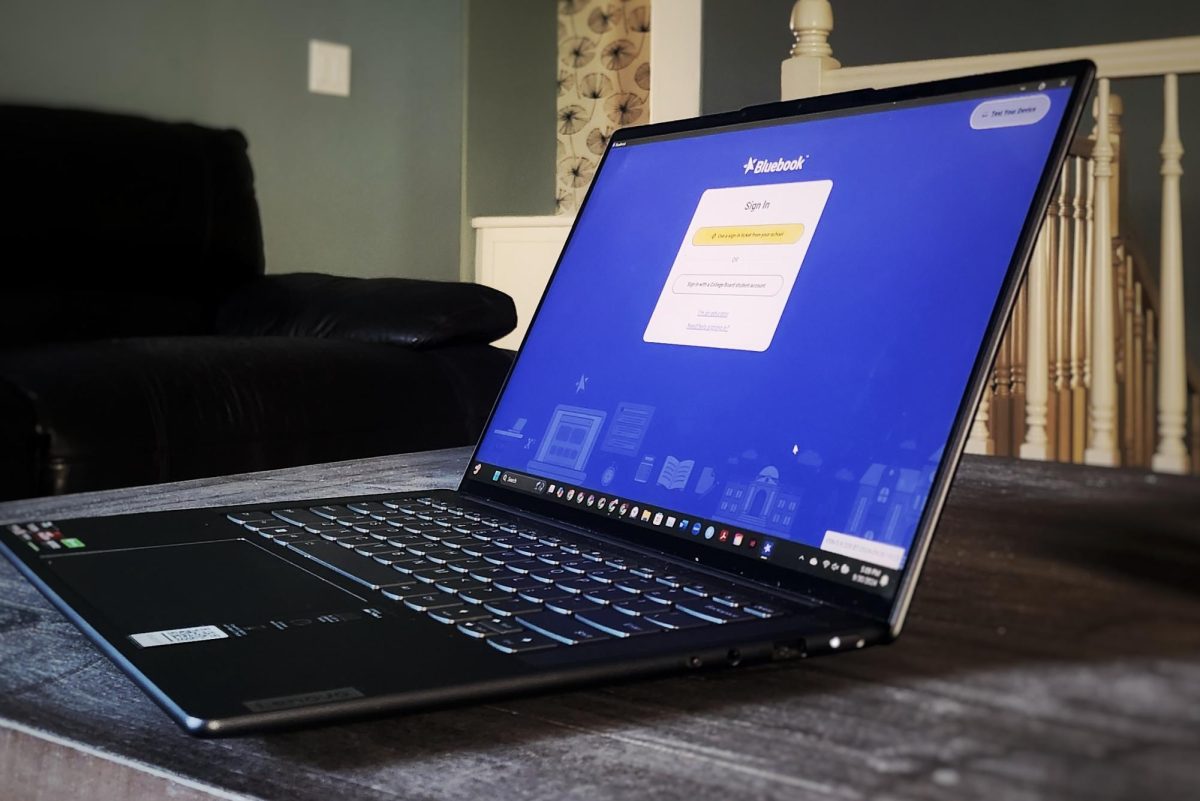The College Board recently announced that 28 AP Exams will be transitioning to digital formats for the upcoming May 2025 exams, and students and teachers have a variety of opinions on the change.
Several humanities courses like AP US History, AP Psychology, and AP English Language and Composition will be transitioning to fully digital exams. A variety of STEM courses like AP Calculus and AP Chemistry, on the other hand, will be partially digital, meaning that a portion of the test will stay hand-written. A full list of the specific courses is available on College Board’s official website.
The reasons for this transition are manifold. First, College Board states that it makes these changes to ensure the continued security of AP Exams. In May 2024, there were massive cheating scandals surrounding multiple exams, mainly AP Chemistry. The O and I forms (different test papers) for AP Chemistry were leaked in China, enabling an astronomical number of students to cheat through social media and secured e-commerce platforms. Hundreds of test takers, as a result, had their scores removed and were barred from future exams. By instead instituting online tests administered through Bluebook, College Board hopes to curb digital cheating.
However, some teachers believe that the transition will cause more harm than good. Specifically, AP history and English teachers are worried about the cognitive drawbacks of typing on a computer as opposed to handwriting.
“Many [students] are accustomed to annotating and processing a text on paper, and online annotation is a bit new,” Mx. Tombs, one of the AP English and Language Composition teachers, pointed out. She also emphasized that handwritten annotations and texts tend to benefit students as opposed to online versions even though taking the test virtually would improve writing speed.
On the other hand, some teachers embrace a positive outlook on digital exams. A notable benefit, by their account, is time saved for teaching.
“As an AP Reader, I welcome the change as it will make reading a lot easier!” AP US History teacher Ms. Halim shared. As a certified AP Reader, she grades AP Exams from across the country. In addition, taking exams online would save a lot of time for teachers having to photocopy and grade tests. “The time saved could be used for more practice, instruction, and skill-building in the classroom,” she explained.
Come this spring, though, many educators and students alike fear that they will hear something along the lines of the following: “Sorry students, the exam has been canceled due to Internet issues. We are working on fixing them as soon as we can, but for now, we cannot do anything”—the dreaded technical issue.
Mr. Mohr, a new AP Biology teacher this year, greatly fears this possibility. “A site somewhere will lose the connection and everyone will be DOOMED,” he pointed out.
He is not the only one who fears there will be tech-related challenges. Students and teachers already experience numerous technical difficulties throughout the week. Though this situation does not have as grave of consequences during a regular school day as it would during an AP exam; many students worry that the AP Exam going offline is an unrecoverable scenario.
Despite all of the debate surrounding the new format of AP Exams, College Board assures students and educators that with greater experience with Bluebook and multiple connection checks, AP Exams will run smoother than ever. But without any previous experience to make an assessment on, only time will tell.




































